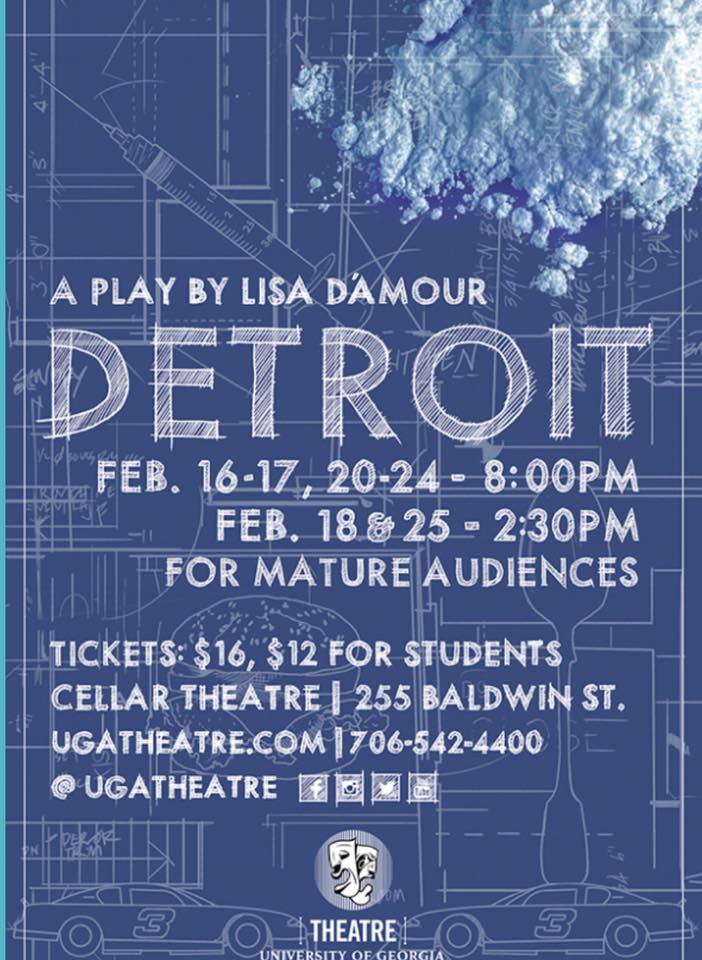DETROIT
Feb 16-25 2018
Detroit Directors Notes
George Contini
It is fairly easy to identify an American at a party—they always insist on asking people they’ve just met “What do you do for a living?”
We Americans , generally, tend to equate our identity with what our job is.
Lisa D’Amour’s Detroit examines this American state of mind---the obsessiveness of our deep ontological need to define who we are in terms of position, class, consumption, race, and gender roles. D’Amour’s characters all suffer from classic existential angst. They’ve lost sight of what it means to “be in the world” because the world has changed and they have lost the power to reinvent themselves. They are grasping at their concepts of reality and identity.
The changes in globalization and technology have changed the types of jobs and situations available to them. Economic and social lines are blurred—who exactly is upper, lower, or middle class? Should education guarantee you a job? A home? A family? What happened to the American pioneer spirit? Don’t I just need a brand and know how to use social media to succeed?
Warning to the graduating class of 2018!
This play depicts the world you are about to enter. A modern comedy of manners with a touch of a horror movie. (Except that in this case, the “killer inside the house” IS the house.)
It is about dreams becoming nightmares.
It is about creating blue prints for the life you think you need to live, and most likely won’t.
It is about our country’s fruited plains becoming a waste land.
By the way, this play does not take place in Detroit.
Detroit is state of mind where The American Dream has imploded and the dust is still settling.
“I will show you fear in a handful of dust.” ---T.S. Eliot, The Waste Land
George Contini
It is fairly easy to identify an American at a party—they always insist on asking people they’ve just met “What do you do for a living?”
We Americans , generally, tend to equate our identity with what our job is.
Lisa D’Amour’s Detroit examines this American state of mind---the obsessiveness of our deep ontological need to define who we are in terms of position, class, consumption, race, and gender roles. D’Amour’s characters all suffer from classic existential angst. They’ve lost sight of what it means to “be in the world” because the world has changed and they have lost the power to reinvent themselves. They are grasping at their concepts of reality and identity.
The changes in globalization and technology have changed the types of jobs and situations available to them. Economic and social lines are blurred—who exactly is upper, lower, or middle class? Should education guarantee you a job? A home? A family? What happened to the American pioneer spirit? Don’t I just need a brand and know how to use social media to succeed?
Warning to the graduating class of 2018!
This play depicts the world you are about to enter. A modern comedy of manners with a touch of a horror movie. (Except that in this case, the “killer inside the house” IS the house.)
It is about dreams becoming nightmares.
It is about creating blue prints for the life you think you need to live, and most likely won’t.
It is about our country’s fruited plains becoming a waste land.
By the way, this play does not take place in Detroit.
Detroit is state of mind where The American Dream has imploded and the dust is still settling.
“I will show you fear in a handful of dust.” ---T.S. Eliot, The Waste Land



